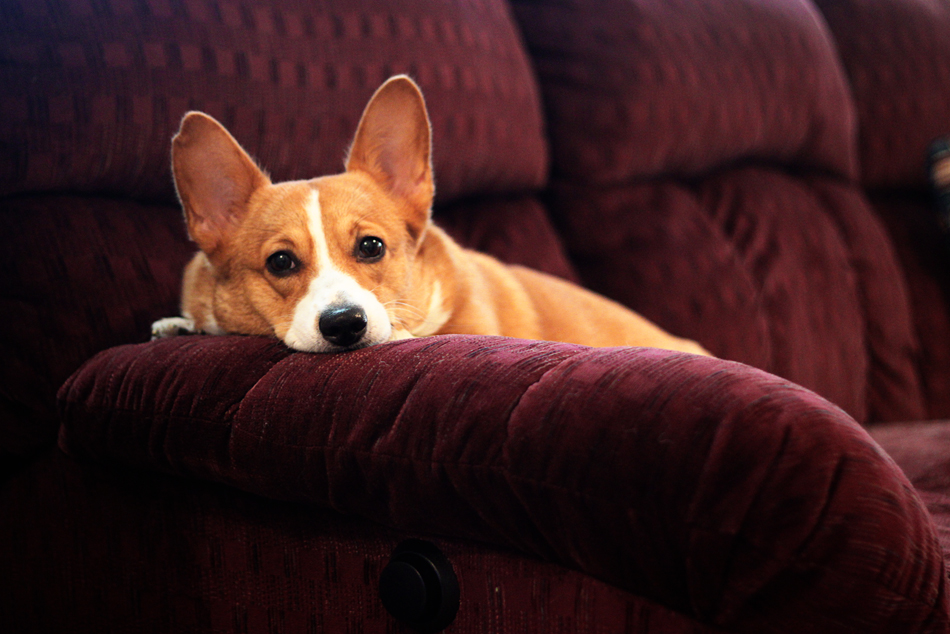
Source: Kimberly Martin-Sprickman via Flickr Creative Commons
Pets and cleanliness don’t exactly go together. Fur, damaged furniture and “accidents” are almost a given when you’re cohabitating with a dog or cat in a tiny apartment. That’s why a ton of New York City rental apartment buildings have a blanket “no-pets policy.” If you’re a pet-lover and have been lucky enough to find a pet-friendly apartment, you’re probably overjoyed, but caveat emptor. Before you dash out to the nearest pet adoption clinic, read these tips for keeping your apartment clean with your new furry friend.
Invest in a Good Vacuum
Seriously. Dog and cat hair will probably be the No. 1 issue you’ll confront when trying to keep your apartment clean, so a powerful vacuum (ideally with a hand-held component for the furniture) is essential. If you don’t have storage space for a full, upright vacuum, opt for a handheld vacuum instead. Dry Swiffer pads are great for hardwood floors, where a vacuum would just blow hair around. Also, make sure to brush your pet often! Better yet, head to a nearby park and brush them out. By collecting fur on a brush you’re protecting your furniture and carpets. Lint rollers are great for cleaning hair off clothing and upholstery, too.
Prevent Shedding Damage
If your pet has a favorite resting place, a couch armrest, for example, place an old sheet or towel there to protect from the inevitable shedding. If there are certain areas of your home or pieces of furniture that you want to keep your dog or cat from ruining, consider setting up blockades or barriers to prevent them from settling there. Baby gates work wonders.
Accidents Happen… Respond Quickly
Clean up accidents ASAP! Stains don’t take long to embed permanently, so clean up immediately. There are tons of products and theories that people swear by for getting rid of accident stains and smells. For cat urine, wipe up the mess as fast as you can. First, absorb as much of the stain as possible by blotting with paper towels. Then, use COLD water to soak and blot the impacted area. Avoid using hot water as that will help set the stain and smell. Also, use enzymatic cleaners over ammonia-based cleaners as ammonia will encourage your cat to return to the site of the crime for future urination activity. Try Arm & Hammer Plus Oxi Clean Pet Stain and Odor Remover or Nature’s Miracle Stain and Odor Remover. If the odor persists, take a scrubby brush and warm water and baking soda to the area.
Choose Your Fabrics Wisely
When buying new furniture, you may want to consider fabrics that don’t clash totally with your pets’ fur. Don’t buy a white couch if you have a black lab, for example. Leather, suede and faux leather and suedes are good options as pet fur doesn’t cling as much as plusher fabrics. Plush fabrics to avoid include chenille, velvet, wool, linen, silk, and tweed. Microfibers and microsuede also don’t cling as much and are good fabrics for resisting tears too. On the subject of tearing, it’s good to remember that loosely woven and thin fabrics are more likely to be torn by eager paws. With that in mind, make sure to regularly clip your pets’ nails!
Spills and Water Damage
Pets are more impervious to spills and puddles than people are. When living with a pet this is an important consideration as your pet will not think to keep their food in their dish while eating or wiping their paws before coming into the house. To prevent spills, puddles and water damage throughout your apartment, place a mat under the food and water bowl and keep an old towel by the door to dry off paws and wet fur after rainy walks.
Litter Box 101
If you have cats, it’s important to stay vigilant about cleaning the litter box to avoid mess and smells. In a small apartment, it’s all the more important to keep things tidy. If you are living in a studio, consider cleaning the litter box daily to keep smells to a minimum and also to keep you cat happy. If litter boxes are soiled, cats tend to take their business elsewhere (i.e., somewhere else in your apartment!) At least weekly, you should do a complete refresh of the box. That means dumping out everything, rinsing the box down and washing with baking soda or some other disinfectant. Again, do not use ammonia to clean the litter box.
Related: